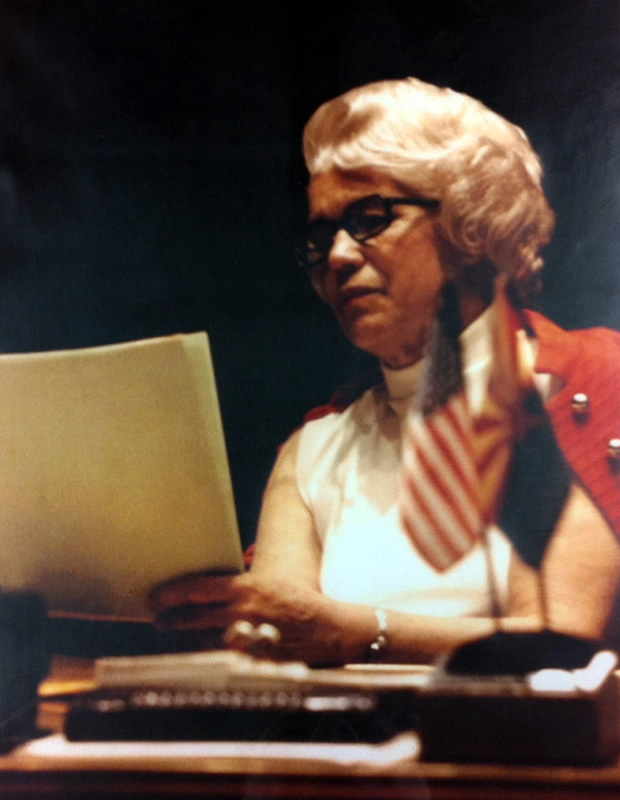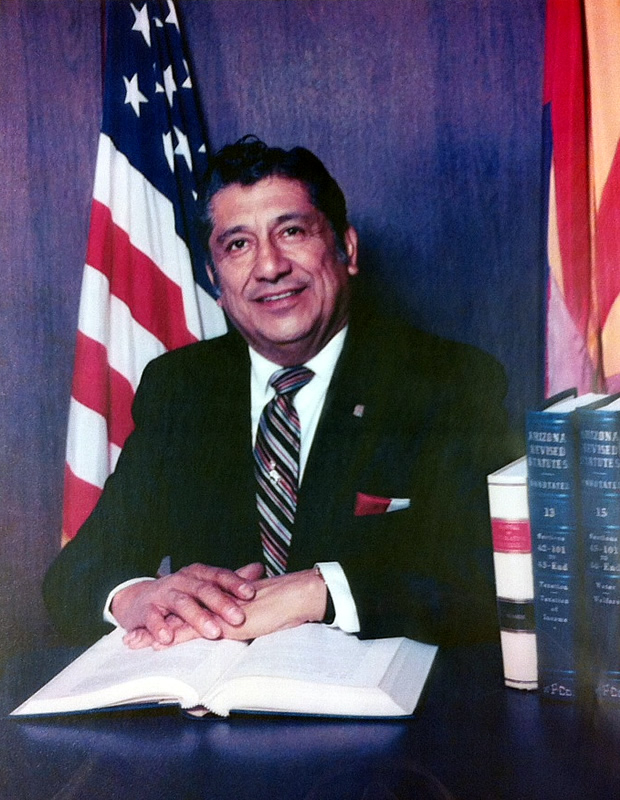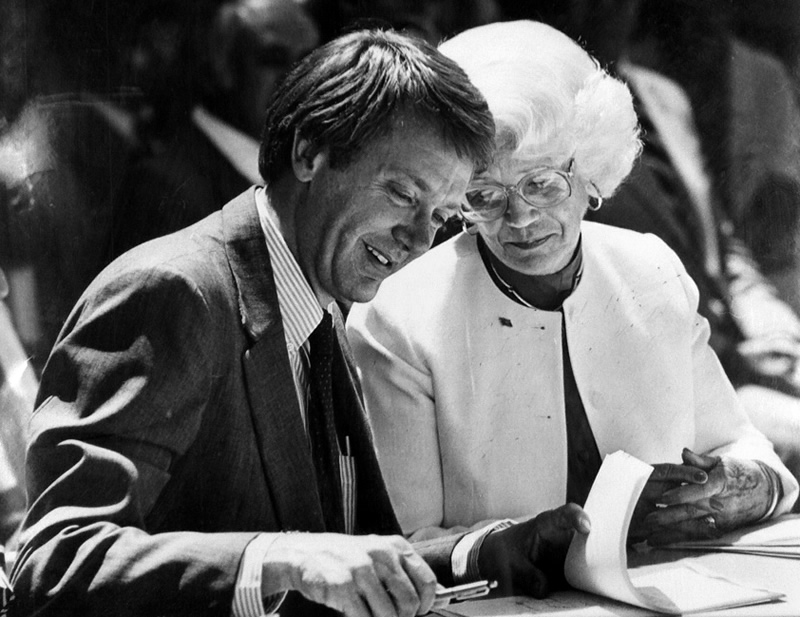Why Cajero Library?
If you’ve graduated from an Arizona high school in the last two decades, you owe something to Carmen Cajero, the 90-year-old former state legislator who died Sunday.
Money.
And perhaps the fact you got a diploma in the first place.
That’s because until the 1980s, Arizona high schoolers had to pay for their textbooks. It was Cajero who, 72 years after Arizona became a state, finally convinced her colleagues it made no sense to charge high school students to go to school.

She inherited the quest from her husband, Bernardo, who was president of the Parent-Teacher Association at Tucson’s Pueblo High School.

Their daughter, Olivia Cajero Bedford, said he learned of kids who did not come to school. She said he would get a list of absentees and visit the parents.
“They would tell him, ‘We’re embarrassed, we can’t afford the textbooks, so we’re keeping our children home,’ ” recalled Cajero Bedford who, like her mother and father before her, now is a state legislator.
“That became his mission: to run for office and change the law,” she said. Bernardo Cajero was elected to the Legislature in 1966 but died seven years later, no closer to his goal.
His widow, Carmen, 56 at the time, persuaded the Pima County Board of Supervisors to appoint her to finish out his term. And she continued getting re-elected every two years.
But Cajero, a Democrat in a Republican-controlled Legislature, said in a 1984 interview that she’d had no idea how difficult it would be to accomplish the goal.
“Even with the budget surpluses we were running in those days, in the area of $40 million a year, everyone said we had to save that money in case there was an emergency,” she said.
For Cajero, the emergency was there for children in her district. “They sent me letters. They even sent me their bills from the (school) bookstore.”
It took until 1984 for the political winds to blow in Cajero’s favor.
A gubernatorial commission on public education supported free texts as one of its recommendations. And Gov. Bruce Babbitt called on lawmakers to provide the necessary funds.

But what may have finally turned the tide is that House Majority Leader Burton Barr signed Cajero’s bill as a co-sponsor, giving it the official blessing of the most powerful elected Republican in the state.
Former House Minority Leader Art Hamilton said it also helped that Cajero — unlike other legislators, including himself — did not use the textbook issue as part of any larger political agenda. “They knew she just cared about the issue,” he said.
That helped her overcome an effort by Sen. Jacque Steiner, R-Phoenix, to tack the issue onto her own legislation to require students to stay in school through the 10th grade, two years longer than required at the time. But Steiner was willing to provide free texts only to those whose family incomes qualified them for the federal free-lunch program.
“When Jacque introduced her ‘only for the needy’ bill, I blew my stack,” Cajero recalled. She said those classified as needy may actually have more available cash than the working poor who do not have the benefit of welfare, food stamps and free medical care.
Hamilton said Cajero also used her position on the House Appropriations Committee to ensure Southern Arizona — and the University of Arizona in particular — did not get lost in the budget negotiations. He said she would “beat the crap out of the rest of us on making sure the U of A got its money.”
She was known for her frugal living style, trying to stretch legislators’ pay as far as possible. During sessions she lived in a travel trailer set up at a Phoenix mobile home park. Cajero retired from the Legislature in 1996.
She also is survived by another daughter, Monica Cajero, and two grandchildren.
Courtesy Of Arizona Daily Star Obituary (April 3, 2007)
A True Trailblazer
State senator Olivia Cajero Bedford didn’t have to look far from home for mentors. She credits her parents Bernardo and Carmen Cajero with having instilled in her a passion for civic engagement and public service.
The family’s history of public service started with Olivia’s father, Bernardo “Nayo” Cajero. The Morenci native settled in Tucson and opened a barber shop in the historic barrio known as “El Hoyo.” It attracted a steady clientele of neighbors, local politicians, teachers and prominent community leaders.
He entered politics encouraged in part by individuals affiliated with the civil rights organization Alianza Hispano Americana and members of the Democratic Party. In 1968, he won a District 10 seat in the Arizona House of Representatives. His work as a precinct and city ward committeeman, and his popularity as an astute businessman and president of Pueblo High School’s PTA, made his election an easy victory.
In January 1973, Bernardo passed away following a series of heart attacks, just as he was beginning his third term as a state representative. Gov. Jack Williams left it to the Pima County Board of Supervisors to select his successor; Carmen Cajero, his widow, was selected to finish his term.
Assuming office, Carmen matched Nayo’s zeal and soon established her own solid reputation as a skillful and smart legislator. Her calm but firm manner won her numerous friends and the respect of colleagues, many of whom fondly called her La Paloma.
She was a champion for the elderly, the poor, women and children. She was particularly proud of introducing an education bill that had been first favored by her husband. The bill called for free textbooks for Arizona’s high school students. She fought for this bill for more than a decade; it was finally passed and signed into law in 1985.
In the 1990s, she introduced a bill that provided state funds to the University of Arizona for bone marrow and cancer research. With her support, the university’s Cancer Research Center was established. She also supported funding for a clinic in her district to help victims of water contamination and pollution. The National Honor Roll of State Legislators acknowledged Carmen for her leadership and efforts to promote and protect the rights of women.